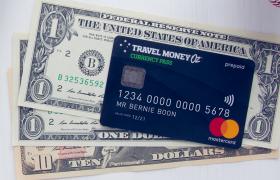Quick Contact

3rd May 2017
The exchange rate between the Australian dollar (AUD) and the British pound (GBP) has, of late, been a bit up and down. The “BREXIT” referendum held in June last year (2016) injected a lot of volatility into the GBP, and the value of the Pound Sterling against global currencies, including our own, has been quite weak over the last few months due to the uncertainty surrounding the process of the UK leaving the European Union.
So, when UK Prime Minister, Theresa May, said she had an unscheduled announcement to make a few weeks back, the markets went into overdrive again. Speculation as to what she could be announcing saw the value of the GBP drop once again, and the rumour-mill was rife.
But of course, we now know that she announced a snap election for the UK – three years early.
We also know that you’re probably wondering what impact the early election might have on your foreign exchange, if any. If the political “Brexit” process had such a big impact on the British Pound and its value against the Aussie dollar, how will this snap election affect it?
Immediate Impact
Once the announcement for the snap election was made on 18 April 2017, the AUD saw an immediate drop against the GBP – in fact, it was the largest one day percentage decline that we had seen against the Pound since August 2015, and the AUD/GBP exchange rate has continued its decline and hit its lowest level since 4 January 2017. Market strategists believe that the shock of the early election announcement put a rocket under the GBP, which lead to an immediate strengthening in the value of the Pound.
Let’s put that into numbers for you.
On 17 April 2017, if you had exchanged AUD$1000 into Pounds, you would have received £573.8 GBP*. If you had exchanged the same amount the very next day, you would have received £559.4*. That’s nearly £15 less you would have had to spend on your UK holiday, across only one day.
A couple of weeks later, and that same AUD$1000 would today get you only £555.20* - over £18 less than you would have received if you had exchange not even two weeks earlier! Talk about politics having an impact on foreign exchange!
Why Did We See These Impacts Following the Announcement?
While the political uncertainty surrounding “Brexit” saw the GBP weaken, the announcement of this early election seems to have had the opposite effect on the value of the Pound. But, why?
Current election polls show that Prime Minister May has a strong chance of winning the election, and even gaining a stronger majority than she has now. And if this is the case, then the popular view is that the UK will head towards a softer “Brexit,” as May will have more consolidated power when it comes to negotiating exit procedures.
There is even a rumour that – to the extreme – “Brexit” could even be reversed and become a “Bremain”.
These election predictions, based on current poll results in the UK, have breathed some stability into the market, and as a result, the markets have rallied after the initial shock announcement. And so far, the GBP has held its gains.
Long-Term Impact on the GBP
In the long-term, it’s hard to know whether the GBP will continue to hold these gains, strengthen further, or fall in value again.
Market strategists have mixed opinions on this. Some believe that this is the beginning of a steady climb for the GBP, back to “pre-Brexit” levels. Others believe that the gains will be short-lived.
At the moment, it is all just conjecture and rumour. If the past year has proven anything, election polls can be wrong (à la Trump style), so we won’t really know the full impact until the election results are actually announced in June.
Even then, that will only show us the short-term impact. The long-term impact is much harder to predict, as any other number of factors could come into play that could weaken or strengthen the AUD against any global currency, not just the GBP.
What Should I Do Now?
If you’re worried that the Pound will only keep getting stronger, you may want to hedge your bets and lock in an exchange rate now before it potentially gets worse. You can do this by exchanging cash, or locking in an exchange rate on a prepaid travel money card^ (which you can then add more funds to later).
However, if you’re not risk-averse, you may be happy to play the wait-and-see game - wait out the elections, see what impact they have in the short-term and then do your currency exchange then.
Of course, there is a certain amount of risk involved either way:
If you exchange now
If the Pound continues to strengthen, then you will be better off if you exchange your AUD for GBP now. But, if the results are a shock and the Pound weakens again, you could potentially have gotten more for your exchange if you had waited
If you exchange later
If the Pound continues to strengthen, then you’ll lose out by exchanging AUD for GBP at a later date. But, if the results are a shock and the Pound weakens again, you could see the upside of this with more Pounds for your Dollars
If you aren’t travelling until after the election, you could try to minimize the impact of either outcome by exchanging some now and some later. You could still be impacted by either downside, but the impact would be limited to smaller amounts exchanged each time, rather than one large lump sum exchange.
They don’t call the currency exchange market complicated for nothing hey.
Whenever you feel is the right time for you to do your foreign exchange, we’re here to help. Our team of FXperts are here to go through your options with you – whether you want to exchange cash, or get a Currency Card to lock in your exchange rate^. We can give you information on both options and take it from there. Just visit your nearest Travel Money Oz store to get the ball rolling.
*Historical exchange rate data available on www.travelmoneyoz.com/foreign-currency as at 2 May 2017
UK election prediction information available on https://www.businessinsider.com.au/the-australian-dollar-just-logged-its...
^Lock in your exchange rates mean the exchange rate is locked in for the initial load only. The exchange rates for subsequent reloads will be set at the prevailing exchange rate at the time of the transaction.
This blog is provided for information only and does not take into consideration your objectives, financial situation or needs. You should consider whether the information and suggestions contained in any blog entry are appropriate for you, having regard to your own objectives, financial situation and needs. While we take reasonable care in providing the blog, we give no warranties or representations that it is complete or accurate, or is appropriate for you. We are not liable for any loss caused, whether due to negligence or otherwise, arising from use of, or reliance on, the information and/or suggestions contained in this blog.












